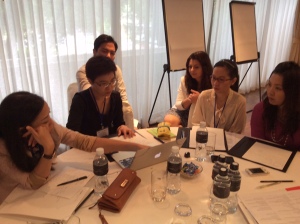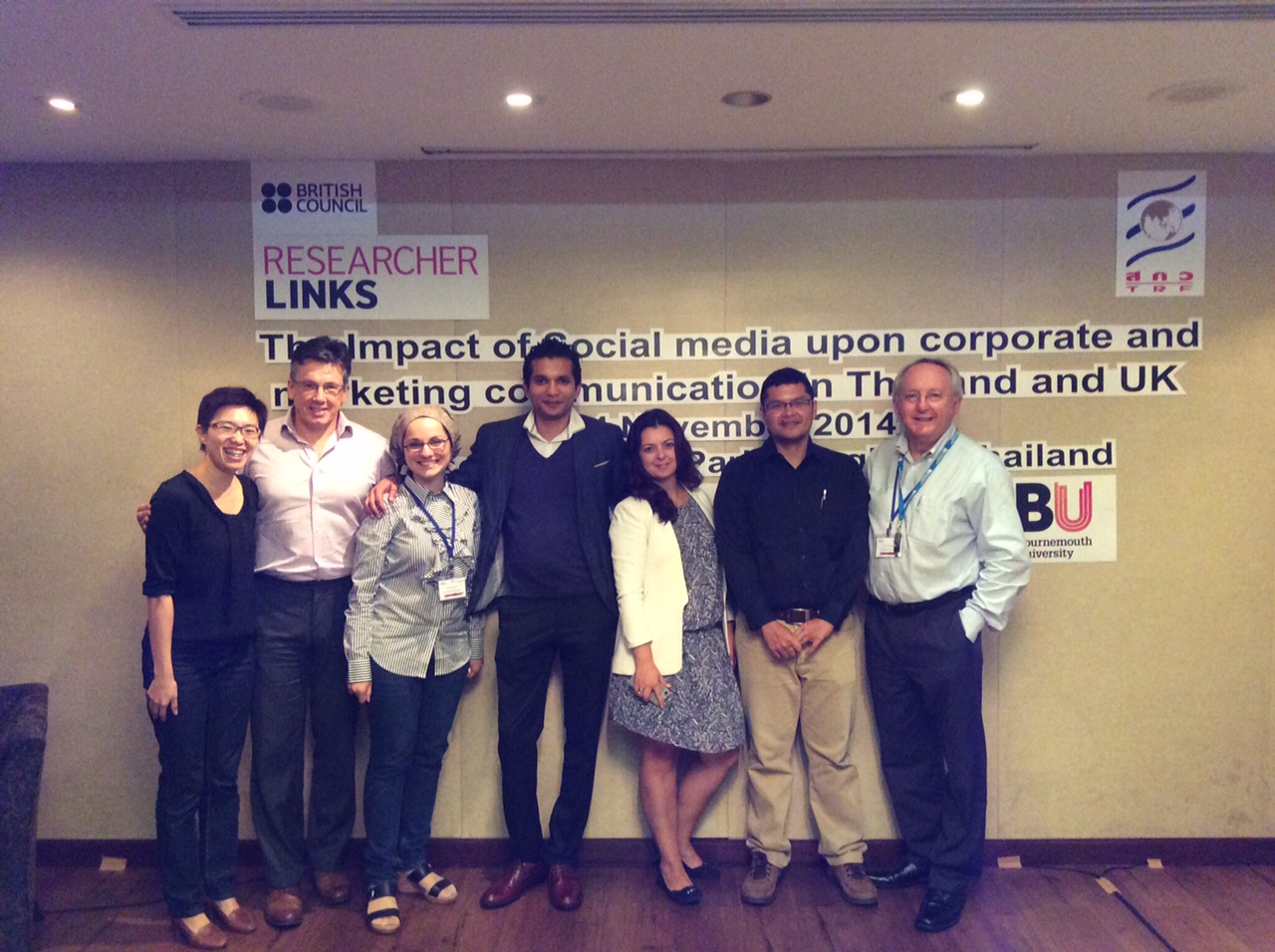A month ago I was making my way to Thailand excited to finally see happening the Researcher Links workshop. Organised by Bournemouth University and Chulalongkorn University, treatment the workshop was the result of a successful bid to the British Council that Prof Tom Watson and I as part of the BU team and Assoc Prof Jirayudh Sinthuphan from Chula have submitted more than a year ago. Chosen from more than other 400 submissions, noun the BU-Chula bid proposed a workshop for early career researchers focused on “The Impact of Social Media on Corporate and Marketing Communication in Thailand and UK”.
Postponed several times due to Thailand’s political turmoil, the workshop gathered in November 2014 participants from four British universities and four Thai ones all sharing an interest in social media and marketing communications. The senior researchers attending delivered talks on getting published, the research process and mix methods and I had the pleasure of adding to the conversation by sharing my presentation on social media research and digital humanities (see below). The biggest part of the workshop however was dedicated to the early career researchers attending, their sharing of research ideas and finding ways of working together given their shared interests.
 I had the opportunity to moderate the discussions of the group interested in political communication. The group quickly identified a common interest in the upcoming Thai elections and found the peculiarities of the social media landscape a good starting point for the research. At the end of the two days of talks, the group was able to propose a project with multiple research questions and already adopting some of the methodologies I had presented. Although the project is large, the team had well thought of ways in which the project could be scalable as well as of parts/questions that could be explored either as pilot studies or smaller studies. Of particular concern were the time available to complete the research project and access to funding, Thai funders such as the Thai Research Fund (who also supported our grant) having more science appropriate criteria of support (high H index of leading contact abroad, impact strategies) than humanities-friendly.
I had the opportunity to moderate the discussions of the group interested in political communication. The group quickly identified a common interest in the upcoming Thai elections and found the peculiarities of the social media landscape a good starting point for the research. At the end of the two days of talks, the group was able to propose a project with multiple research questions and already adopting some of the methodologies I had presented. Although the project is large, the team had well thought of ways in which the project could be scalable as well as of parts/questions that could be explored either as pilot studies or smaller studies. Of particular concern were the time available to complete the research project and access to funding, Thai funders such as the Thai Research Fund (who also supported our grant) having more science appropriate criteria of support (high H index of leading contact abroad, impact strategies) than humanities-friendly.
As a researcher myself, I fully understand my Thai colleagues concerns. With increasing and conflicting demands for teaching, consultancy and research, and with universities increasingly looking into the ROI of research but also into the reputational advantages of industry collaborations and research funding, early career researchers must choose carefully their projects and collaborations. I hope however that the workshop we organized with the support of the British Council showed Thai and UK colleagues alike that working collaboratively is one way of continuing to be research active despite growing challenges. I also hope we managed to show that support is available and, more importantly, that there is an appetite for international, cross-cultural and multidisciplinary work.
